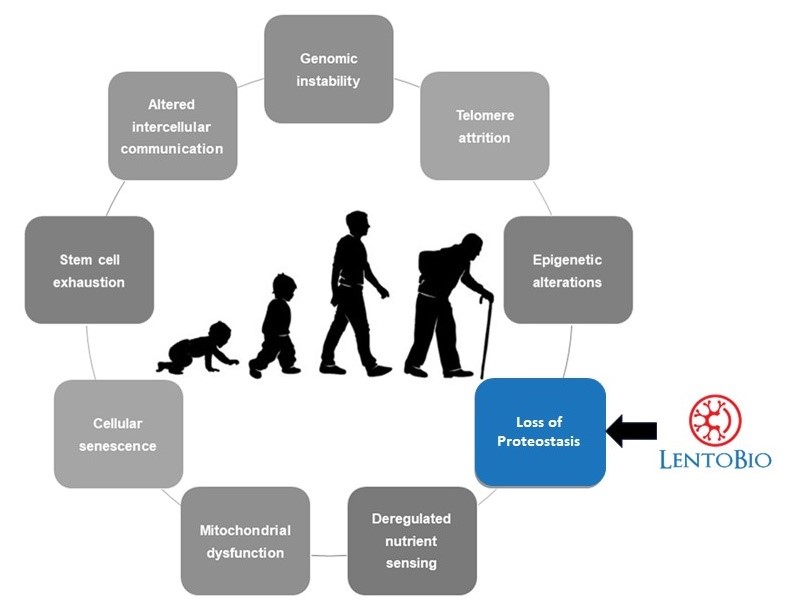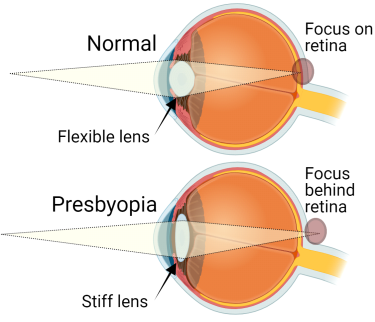THE SCIENCE OF LONG-LIVED PROTEINS IN AGING DISEASE
lONG-LIVED PROTEIN DAMAGE AND AGING
Aging is defined by multiple distinct hallmarks of damage. Lento Bio is targeting damage that stochastically accumulates with aging in long-lived structural proteins that experience minimal turnover. Long-lived protein damage comes in many different forms including glycation, lipoxidation, carbamylation, aberrant disulfide formation, and others, and can cause highly disease-relevant physiological changes such as tissue stiffness and inflammation. We are inhibiting and reducing this damage using small molecule therapeutics which are well designed to penetrate deep into tissue and reach the site of damage.
Whereas long-lived protein damage happens to some extent in every tissue, we are focusing on diseases where this damage is a disproportionate driver of pathology.

Presbyopia is an Ideal Disease Indication Focus
Presbyopia is a disorder where near-vision is lost with age due primarily to age-related stiffening of the lens and the resulting inability to bend to focus light on the retina. It is arguably the earliest onset and most ubiquitous aging disease, occurring around people’s mid-40s.
The connection between lens tissue stiffness and presbyopia is well understood, and the connection between structural protein crosslinking and tissue stiffness is well understood, meaning the approach towards developing a treatment compound is straightforward.
The use of eyedrops enables administration of high concentrations of therapeutic agents directly to the affected tissues, minimizing systemic toxicity.
Lack of first pass metabolism by the liver and kidney further reduces the amount of the treatment compound required.
In presbyopia, the lack of nuclei and organelles and minimal metabolism in most adult lens cells along with the long, possibly indefinite turnover times of lens crystallins makes for a situation where this hallmark is easily the most critical to rejuvenating the tissue.

Spotlight
Advanced Glycation End Products (AGEs)
While cells need sugars such as glucose and fructose to carry out their functions, they are reactive molecules and thus can also bind non-enzymatically with biologic macromolecules in a process termed glycation.
Glycation gives rise to irreversible modifications termed Advanced Glycation End Products (AGEs) which accumulate in the body. This accumulation causes damage through protein crosslinking and inflammation. AGEs are one major focus for Lento Bio, with the goal being to develop therapeutic compounds which reduce AGEs.
